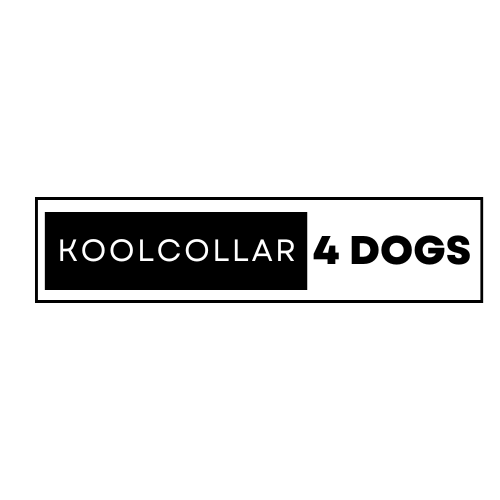Introduction to small breed puppies
Small breed puppies are undeniably adorable, with their tiny bodies and big personalities. However, their diminutive size also means they have unique nutritional requirements that must be met. To ensure their optimal growth and development. As a responsible pet owner, it’s crucial to choose the right dog food tailored to their specific needs. In this comprehensive guide, we’ll explore the intricacies of selecting the best dog food for small breed puppies. Ensuring your furry companion thrives and lives a healthy, happy life.
Importance of choosing the right dog food for small breed puppies
Proper nutrition plays a vital role in a puppy’s growth, development, and overall well-being. Small breed puppies have higher metabolic rates and energy requirements compared to their larger counterparts. Feeding them an inappropriate diet can lead to various health issues, such as stunted growth, obesity, or nutrient deficiencies. Choosing the best small dog food ensures they receive the right balance of nutrients, vitamins, and minerals necessary for their optimal development.
Understanding the nutritional needs of small breed puppies
Small breed puppies have specific nutritional needs that differ from larger breeds. They require a higher concentration of calories, protein, and certain minerals to support their rapid growth and development. The best puppy food for small dogs should have a higher fat-to-protein ratio to provide the calorie-dense nutrition they need. Additionally, their smaller mouths and jaws necessitate smaller, bite-sized kibble to prevent choking hazards. Understanding these unique requirements is crucial when selecting the best dry food for small dogs.
Factors to consider when choosing dog food for small breed puppies
When choosing the best dog food for small breed puppies, several factors must be considered:
- Life Stage: Puppy formulas are specifically designed to meet the nutritional needs of growing puppies. Look for dog foods labeled as “puppy” or “growth formula”.
- Breed Size: The best small breed dog food recommended by vets is tailored to the unique needs of tiny breeds, with higher caloric density and smaller kibble sizes.
- Ingredients: Opt for high-quality protein sources, such as chicken, turkey, or fish, as well as complex carbohydrates and healthy fats. The healthiest dog food for small dogs should include superfoods, probiotics, DHA, and antioxidants. Avoid fillers, artificial preservatives, and byproducts.
- Nutrient Profile: Ensure the dog food meets the AAFCO standards established for puppy growth and development. The best kibble for small dogs should have the optimal fat-to-protein ratio.
- Palatability: Small breed puppies can be picky eaters, so choose a palatable formula with enticing flavors and aromas. Fresh food toppers can help enhance palatability.
Common mistakes to avoid when selecting dog food for small breed puppies
While navigating the world of dog food, it’s essential to steer clear of common pitfalls that could compromise your puppy’s health:
- Feeding Adult Dog Food: Adult dog foods lack the necessary nutrients and caloric density for growing puppies, leading to potential nutritional deficiencies. Always choose a growth formula for puppies.
- Overfeeding or Underfeeding: Improper portion sizes can result in obesity or malnutrition. Both of which can have adverse effects on your puppy’s development. Follow feeding guidelines carefully.
- Switching Foods Abruptly: Sudden changes in diet can cause digestive upset and disrupt your puppy’s delicate digestive system, especially if they have a sensitive stomach. Always transition gradually when introducing a new food.
- Relying on Marketing Claims: Many dog food brands make misleading claims about their products. Always read the ingredient list and nutritional information carefully. Look for AAFCO standards rather than vague claims.
Top brands of dog food for small breed puppies
When it comes to choosing the best dog food for small breed puppies, several reputable brands stand out:
- Wellness CORE Puppy Formula: This grain-free formula is packed with high-quality protein sources like chicken and turkey, plus essential nutrients, tailored for small breed puppies.
- Purina Pro Plan Puppy Small Breed: Developed by veterinarians and nutritionists, this formula provides complete and balanced nutrition for small breed puppies, with chicken as the #1 ingredient.
- Blue Buffalo Life Protection Puppy Small Breed: With real chicken as the first ingredient and no artificial flavors or preservatives, this brand offers a wholesome option for your puppy.
- Hill’s Science Diet Puppy Small Bites: Specially formulated with smaller kibble sizes and tailored nutrition for small breed puppies, this brand prioritizes digestibility and palatability. It includes DHA for brain development.
- Royal Canin Small Puppy: Designed specifically for small breed puppies, this formula supports healthy growth and development while promoting optimal stool quality. It has the ideal kibble size for tiny mouths.
Tips for transitioning your small breed puppy to a new dog food
Transitioning to new dog food can be a delicate process for small breed puppies. As their sensitive digestive systems may react adversely to sudden changes. Follow these tips for a smooth and successful transition:
- Gradual Introduction: Introduce the new food gradually by mixing it with the old food in increasing proportions over 5-7 days. This allows their system to adjust.
- Monitor Digestive Health: During the transition period, observe your puppy’s stool consistency and overall digestive health. Slow down the transition or consult your veterinarian if any adverse reactions occur.
- Stay Consistent: Once the transition is complete, stick to the new dog food for at least a few weeks to allow your puppy’s digestive system to adjust fully. Avoid switching between different brands frequently.
- Hydration: Ensure your puppy has access to fresh, clean water at all times, as proper hydration aids in digestion and nutrient absorption, especially when transitioning to dry food.
Homemade vs. commercial dog food for small breed puppies
While homemade dog food can be a tempting option, it requires meticulous planning and knowledge to ensure your small breed puppy receives the correct balance of nutrients. Commercial dog foods, on the other hand, are formulated by veterinary nutritionists and undergo rigorous testing to meet the specific nutritional requirements of growing puppies.
If you choose to prepare homemade meals for your puppy. Consult with a veterinary nutritionist to create a balanced and complete diet that meets AAFCO standards. However, for most pet owners, high-quality commercial dog foods are a more convenient and reliable option for providing optimal nutrition.
How to read and understand dog food labels
Navigating the world of dog food labels can be overwhelming. But, understanding the key components is crucial for making an informed decision about the best food for small dogs. Here’s a breakdown of what to look for:
- Ingredient List: Ingredients are listed in descending order by weight. Look for high-quality protein sources, such as chicken, lamb, or fish, listed first. Avoid generic terms like “poultry” or “meat”.
- Guaranteed Analysis: This section provides the minimum percentages of crude protein, crude fat, crude fiber, and moisture content. Look for high protein and fat levels for small breed puppies.
- Nutritional Adequacy Statement: This statement indicates whether the dog food meets the AAFCO’s nutritional requirements for a specific life stage, such as “growth” or “all life stages”.
- Calorie Content: Small breed puppies require a higher caloric density, so pay attention to the calorie content per cup or per kilogram. This ensures they get enough energy in small portions.
- Feeding Guidelines: While these are general recommendations, adjust the portion sizes based on your puppy’s individual needs and activity levels. Monitor body condition to avoid over- or underfeeding.
Feeding schedule and portion control for small breed puppies
Establishing a consistent feeding schedule and practicing portion control are essential for maintaining your small breed puppy’s optimal health and preventing obesity. Here are some general guidelines:
- Feeding Schedule: Small breed puppies typically do best with three to four small meals per day until they reach 6 months of age. After that, you can transition to two meals per day.
- Portion Sizes: Follow the recommended feeding guidelines on the dog food label, but be prepared to adjust based on your puppy’s body condition and activity levels. Use a measuring cup or scale to ensure accurate portions.
- Free-Feeding vs. Scheduled Meals: While some owners prefer free-feeding, scheduled meals can help prevent overeating and establish a routine for your puppy. This is especially important with calorie-dense foods.
- Treats and Snacks: Treats and snacks should make up no more than 10% of your puppy’s daily caloric intake. Choose low-calorie, high-quality treats and adjust their regular meal portions accordingly.
Common health issues in small breed puppies and how diet can help
Small breed puppies are prone to certain health issues, and a well-balanced diet can play a crucial role in prevention and management:
- Hypoglycemia: Small breed puppies are susceptible to low blood sugar levels, which can be prevented by feeding frequent, small meals and providing a diet rich in complex carbohydrates.
- Dental Issues: Smaller breeds are more prone to dental problems, such as tooth decay and gum disease. Choosing a high-quality dry dog food with crunchy kibble can help promote dental health by removing plaque and tartar buildup.
- Obesity: Small breed puppies are at a higher risk of becoming overweight or obese due to their small size and high metabolic rates. Feeding appropriate portion sizes and choosing a diet formulated for small breeds can help prevent obesity-related health issues.
- Allergies and Sensitivities: Some small breed puppies may develop food allergies or sensitivities. If this is the case, consult your veterinarian about switching to a limited-ingredient or hypoallergenic diet.
Frequently asked questions about dog food for small breed puppies
- Can I feed my small breed puppy adult dog food? No, adult dog foods lack the necessary nutrients and caloric density required for proper growth and development in small breed puppies. Always choose a growth formula.
- How often should I feed my small breed puppy? Small breed puppies typically do best with three to four small meals per day until they reach 6 months of age, after which you can transition to two meals per day.
- Is it okay to mix different dog food brands? It’s generally not recommended to mix different dog food brands, as they may have varying nutrient profiles and ingredient sources. Stick to one high-quality brand and gradually transition if you need to switch.
- Can I feed my small breed puppy table scraps or human food? While occasional small treats are generally safe, it’s best to avoid feeding your puppy table scraps or human food regularly, as they may lack essential nutrients or contain ingredients that are harmful to dogs.
- When should I transition my small breed puppy to adult dog food? Most small breed puppies can transition to an adult dog food formula around 9-12 months of age, but consult with your veterinarian for specific recommendations based on your puppy’s breed and growth rate.
Conclusion: Making the best choice for your small breed puppy
Choosing the best dog food for your small breed puppy is an investment in their long-term health and happiness. By understanding their unique nutritional needs, reading labels carefully, and selecting high-quality, breed-specific formulas, you can ensure your furry companion receives the optimal nourishment for proper growth and development.
Remember, every puppy is an individual, and their dietary requirements may vary. If you have any concerns or questions, don’t hesitate to consult with your veterinarian or a certified animal nutritionist. With the right diet and care, your small breed puppy will thrive and bring you countless years of joy and companionship.
To ensure your small breed puppy receives the best possible nutrition, consider investing in high-quality dog food formulated specifically for their unique needs. Visit our online store or your local pet supply store to explore a wide range of top-rated small breed puppy food options, including the best dry puppy food for small breeds and vet-recommended puppy food for small breeds. Give your furry friend the gift of optimal health and vitality with the perfect dog food tailored for their size and life stage.


